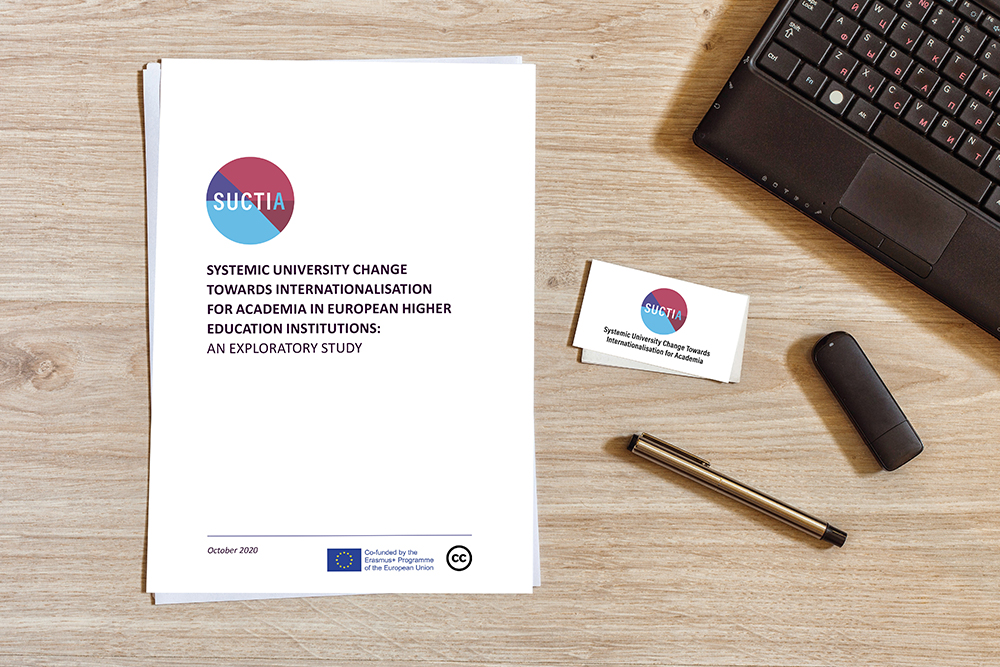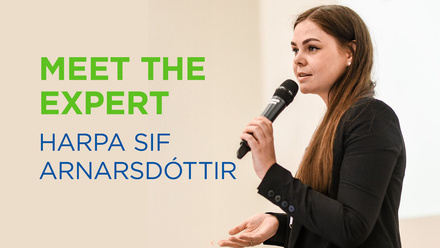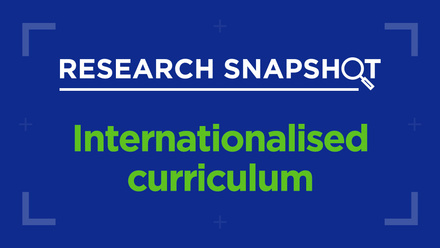Engaging academics in internationalisation: SUCTIA insights

It’s probably fair to say that most professionals and academics working closely with the phenomenon of internationalisation in higher education today agree that strategic and ‘comprehensive’ approaches to this work require active engagement from a wide array of stakeholders. Without question, one of the most important such stakeholder groups consists of academic staff.
In their various roles as professors, researchers, lecturers, deans, student advisors, project leaders and more, these individuals advance the core work of higher education institutions through teaching, research and community engagement. If these individuals are not meaningfully involved in the internationalisation agendas of their institutions, it stands to reason that vitally important aspects of the work to educate students for 21st-century careers and communities, to advance relevant new knowledge and to situate higher education institutions appropriately across a multitude of complex contexts, will fall short.
Understanding needs to craft solutions
The questions of whether, in what ways and to what ends academics are engaging with internationalisation – and are supported in doing so, or not – represent a key starting point for Systemic University Change Towards Internationalisation for Academia (SUCTIA). SUCTIA is a three-year (2019–2022), European Union-funded project that grew out of a predecessor project known as SUCTI. Just as SUCTI aimed at “empowering administrative staff by providing them with knowledge and skills related to their university’s internationalisation process”, the SUCTIA project aspires to do the same for academic staff. SUCTIA also draws on SUCTI’s formula for engagement and support that is anchored in peer-to-peer training.
In order to offer effective supports and develop meaningful peer training, it’s vital first to understand academic staff engagement with internationalisation
But, in order to offer effective supports and develop meaningful peer training, it’s vital first to understand how academic staff and their institutional management perceive the experience of academic staff engagement with internationalisation. To do this, the SUCTIA project undertook an exploratory study that aimed to uncover key considerations around if and how academic staff interact with internationalisation strategies and/or activities in European higher education institutions. An additional focus of the study was what academic staff and institutional actors think is working or could be enhanced to further engage academic staff in the work of internationalisation at the institutional level. Also explored was the existence of training sessions for academics, what topics these sessions currently focus on, and which topics stakeholders think should be offered in such training was also explored.
Context, complexity and perspective
The SUCTIA report captures insights from 37 institutions in 16 different countries across Europe, along with perspectives from 34 individual academic staff working at 5 institutions that were profiled in greater depth in the study. Though relatively small in terms of number of individual and institutional respondents, the variety of the perspectives and insights that emerge from the data highlight a key finding of the study: perspectives among academic staff seem to be highly individualised and context matters greatly, even within a single institution.
This has very important implications for any efforts aimed at engaging and supporting academic staff with respect to internationalisation. Thoughtfully and accurately gauging awareness, perspectives and needs may make all the difference when formulating interventions and opportunities designed to speak to the unique interests of academic staff in relation to an institution’s internationalisation objectives.
Communication, incentives and resources
Another consistent message coming from the SUCTIA study is that information and communication regarding internationalisation are quite visible to, and both greatly desired and highly appreciated by, academic staff. Yet again, as demonstrated by the institutional profiles within the SUCTIA study, even within the same institution, views on the effectiveness of communication strategies and information dissemination efforts can vary depending on the perspective of the actor. Given the centrality of this aspect of the work of engaging academic staff with internationalisation, communication strategies seem likely to require ongoing prioritisation and enhancements.
Along with information and communication, the SUCTIA study also highlights the role that incentives and rewards and can and do play in the academic staff engagement equation. From rewarding their efforts at the time of performance assessments, to recognising their contributions through awards, to encouraging their participation through funding mechanisms, there are a variety of ways that stakeholders see value in acknowledging academic staff engagement in internationalisation in ways that matter to them. Efforts to encourage engagement and activity should clearly take these findings into account – of course, in ways that make sense to the specific academic staff whose new involvement is being sought or ongoing engagement is being further cultivated.
Information and communication regarding internationalisation are quite visible to – and both greatly desired and highly appreciated by – academic staff
Finally, in conjunction with matters of information and communication, incentives and rewards, the work of academic staff to engage with and support the internationalisation efforts of their institutions – like all work – requires an investment of resources. The SUCTIA study data indicates that resources such as time, money, and administrative staff support are perceived by stakeholders as being particularly important for fostering greater engagement of academic staff in internationalisation. So, sensitivity to the realities of resource needs and interests will likely prove important as advocates for greater academic staff involvement endeavour to advance this agenda.
Letting the data lead the way
Leveraging what several tens of respondents took the time to share via the SUCTIA study questionnaires they completed, the SUCTIA project now pushes forward into the subsequent stages of its work. This will be focused on developing and designing blended training materials for a train-the-trainers module, creating a network of training experts focused on engaging academic staff, and designing and developing training materials for in-house trainings to be delivered by these experts.
Of course, the project has been affected by the realities of the COVID-19 pandemic and the partners have adjusted approaches to the work of the project accordingly. Limited mobility options and new opportunities to engage remotely have resulted in the project consortium moving their work online and at the same time adjusting plans for the training sessions to include not only blended formats but also entirely virtual modules. All of this work finds inspiration in the array of insights and considerations made apparent by the SUCTIA report as well as the new reality in which we find ourselves: engaging academic staff in the internationalisation agenda of an institution is complex, compelling and deeply important work.






